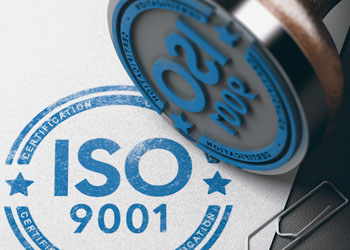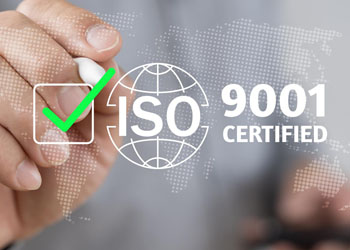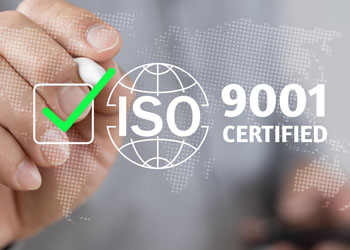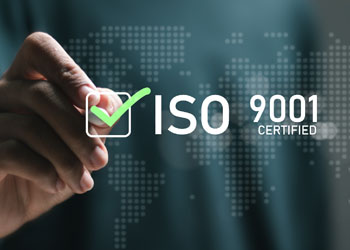Self-Assessment for Achieving Institutional Excellence According to EFQM
Course Overview
Self-assessment based on the European Foundation for Quality Management (EFQM) model is a vital tool for improving organizational performance, allowing organizations to systematically and comprehensively analyze their performance. Through self-assessment, strengths and areas for improvement can be identified, contributing to higher levels of institutional excellence. This training program is designed to equip participants with the knowledge and skills necessary to effectively apply the EFQM model in their organizations. The program will focus on how to conduct self-assessment processes, analyze results, and develop sustainable improvement plans. Additionally, participants will be empowered to use assessment outcomes to develop effective strategies that achieve institutional excellence and support innovation and continuous improvement. The program covers best practices and global standards for effectively applying the EFQM model.
Course Objectives
- Develop a comprehensive understanding of EFQM self-assessment standards.
- Analyze organizational performance and identify improvement areas effectively.
- Implement improvement strategies based on self-assessment outcomes.
- Enhance the ability to conduct systematic self-assessments.
- Achieve sustainable institutional excellence through best practices.
Target Audience
- Quality Management Professionals: Individuals responsible for implementing and overseeing quality management systems within organizations.
Organizational Development Specialists: Professionals focused on enhancing organizational performance and effectiveness through systematic assessment.
Senior Leaders and Executives: Top management seeking to drive institutional excellence and align strategies with performance improvement.
Performance Improvement Teams: Groups dedicated to analyzing and enhancing organizational performance metrics.
Change Management Practitioners: Individuals leading initiatives aimed at fostering a culture of continuous improvement.
Human Resources Managers: HR professionals involved in developing and maintaining quality and performance standards within the organization.
Anyone Interested in Quality and Excellence: Individuals looking to deepen their understanding of the EFQM model and its application in achieving institutional excellence.
Course Modules
Fundamentals of Self-Assessment According to EFQM
- Concept of self-assessment and its importance in institutional excellence.
- Components of the EFQM model and their application in self-assessment.
- Essential steps for effectively conducting the self-assessment process.
- Identifying strengths and opportunities for improvement using EFQM.
- Preparing final reports and improvement recommendations
Analyzing Organizational Performance Based on EFQM Standards
- Understanding the main pillars of the EFQM model and their impact on performance.
- Evaluating leadership, strategy, and operations using the EFQM model.
- Analyzing assessment results and identifying performance gaps.
- Using analysis tools to prioritize improvement initiatives.
- Transforming assessment results into actionable strategies.
Implementing Improvement and Development Plans
- Developing organizational improvement plans based on self-assessment.
- Linking improvement plans with organizational strategic goals.
- Implementing and monitoring improvement plans to ensure desired outcomes.
- Managing organizational change to achieve institutional excellence.
- Regularly evaluating and adjusting improvement plans as needed.
Enhancing Innovation and Sustainability Through Self-Assessment
- The role of innovation in achieving institutional excellence according to EFQM.
- Strategies to foster innovation based on assessment results.
- Achieving sustainability in institutional excellence through recurring assessments.
- Applying sustainable management techniques in organizations.
- Promoting a culture of continuous improvement and innovation.
Best Practices in Applying the EFQM Model
- Case studies of organizations that achieved excellence using EFQM.
- Common challenges in applying the EFQM model and how to overcome them.
- Analyzing success stories and learning from them for effective EFQM application.
- Developing leadership skills to apply institutional excellence.
- Collaboration among teams to achieve outstanding results.
Instructor
Name: Professor Nizar Ammar bin Al Sagheer
Specialization: Governance, Anti-Corruption, Human Rights, and Project Management
Certificates: Master in Governance and Anti-Corruption Master in European Law and Euro-Maghreb Relations
Core Programs Trained: Development of codes of conduct and ethics Governance in the public sector Social dialogue
Bio: Expert in governance, anti-corruption and project management. He has worked as an advisor to the Tunisian government in the areas of good governance and civil service reform. He has international experience with organizations such as the OECD and the Council of Europe, and has made significant contributions to the formulation of codes of conduct and national strategies for combating corruption. He has given numerous interventions in national and international conferences on transparency and corporate governance.
- Languages: English
- Program Levels: Operational level
- Venue: Company Headquarters
- Hours: 20
- Location:











